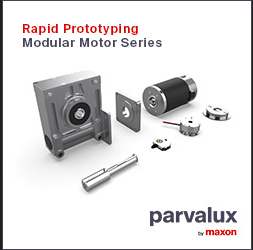Beyond Automation: How Software is Redefining Industrial Machinery
.jpg)
The machines that power modern manufacturing are undergoing a profound transformation. No longer just mechanical marvels, they are evolving into intelligent, connected and highly adaptable assets, driven by a silent revolution deep within their core: embedded engineering.
Software-Defined Machinery (SDM) leads the transformation where the capabilities and performance of industrial assets are determined by sophisticated software. When paired with AI, this software unlocks a new realm of capability, efficiency, and innovation.
What Is Embedded Engineering, and Why Does It Matter?
Embedded engineering is a specialized field focused on designing and developing software and hardware systems that are integrated directly into a larger mechanical or electrical system. These systems often have real-time computing constraints, giving a machine its "brain" and "nervous system."
In the past, industrial machinery required fixed, hardware-centric controls. All that is changing now, and with progress in embedded engineering, machines are becoming:
- Intelligent: Able to make complex decisions, processing data in real time and adaptive control.
- More Connected: Smooth communication capabilities – from other machines, cloud-based platforms or human drivers.
- Always Evolving: These machines are able to unlock new features by receiving over-the-air (OTA) software updates that improve performance throughout their lifecycle.
This shift is creating a complementary parallel to the Software-Defined Vehicle (SDV) trend. However, it is applied directly to heavy equipment, robotics and industrial mobility systems that power sectors like agriculture, construction, and mining. It is also a foundational concept of Software-Defined Mobility, extending intelligence and connectivity across entire fleets and operational ecosystems.
How Intelligent Machinery is Reshaping Manufacturing
For manufacturers, embracing advanced embedded engineering and SDM means:
- Enhanced and Efficient Operations: Predictive maintenance, optimized resource allocation, and automated workflows reduce downtime and boost productivity.
- New Capabilities: From advanced driver-assistance systems (ADAS) for heavy machinery to fully autonomous operations in hazardous environments, software enables capabilities previously unimaginable.
- Faster Innovation: Software-defined architectures allow for rapid prototyping, testing, and deployment of new features, keeping products competitive.
- Improved Safety & Reliability: Precision control and real-time diagnostics contribute to safer operations and more reliable equipment.
- New Revenue Streams: Subscription-based features, data-driven services, and performance-based models become possible.
Partnering for a software-centric future
The transition to software-defined machinery is not just a technological change; it’s a paradigm shift of what a machine can be. This shift from hardware-first to software-centric engineering requires a new strategic approach, one that focuses on integrated systems and continuous evolution.
Expert partners with a deep understanding of embedded systems and digital product engineering are essential to navigating this journey. They can help manufacturers unlock the full potential of their equipment by enabling a complete lifecycle of innovation—from initial design and development to ongoing software-driven updates.
This transformation also depends on access to a scalable, global talent ecosystem. Specialized teams with experience in AI, high-performance computing (HPC), and over-the-air (OTA) technology are crucial for delivering on the promise of smarter, more adaptable machinery.
The future of manufacturing belongs to those who see their assets as intelligent, connected platforms. It’s about creating machinery that can evolve, learn, and contribute to a more efficient, productive, and safe industrial future. Partnering with the right expertise is the key to charting this course and ensuring that your organization is at the forefront of this era of innovation.
Sarang Likhite (Account Director, Randstad Digital)
Sarang is based in Indianapolis, Ind. He has deep expertise in Industrial IoT, connected vehicles, telematics, digital transformation, and industry 4.0. Sarang has an M.B.A. in General Business Management from University of Michigan and a Master of Science in Mechanical Engineering from Kettering University. Additionally, he is an AWS Cloud Practitioner, SAFe Agilist, Pragmatic Certified Product Manager, and a Certified Supply Chain Professional.
Comments (0)
This post does not have any comments. Be the first to leave a comment below.
Featured Product

